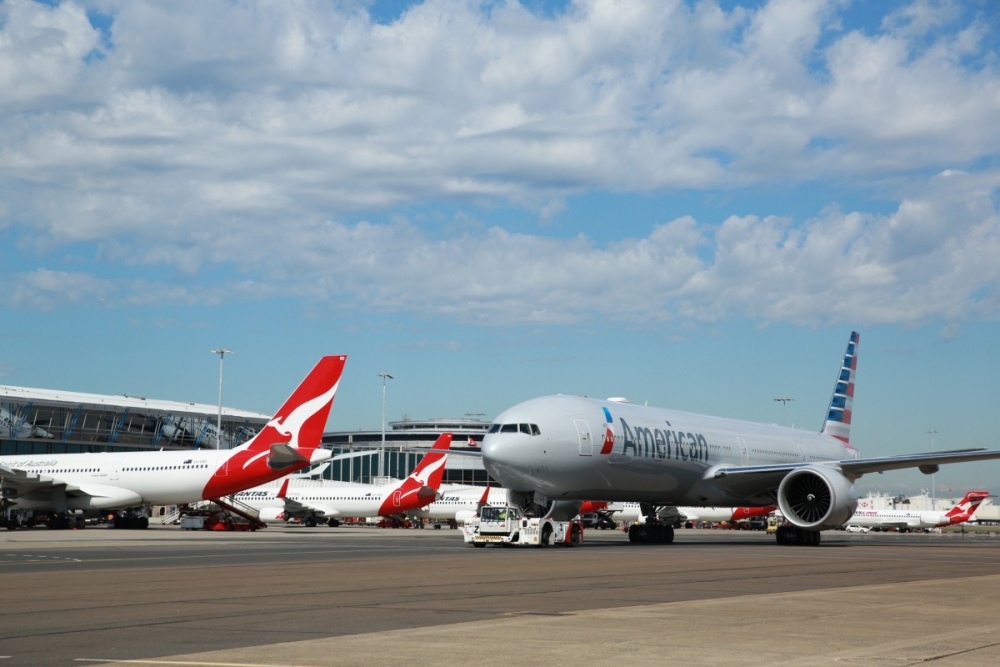American and Qantas object to US finding on alliance
22 November, 2016
4 min read


AMERICAN Airlines and Qantas are filing an objection to a US Department of Transportation provisional finding that an enhanced trans-Pacific alliance between the two carriers would be anti-competitive.
The airlines hope that wil be able to reverse the “tentative’’ decision against the alliance which would allow them to coordinate functions such scheduling, network planning, sales, customer services and capacity decisions. The airlines argue the alliance would allow them to more effectively compete across the Pacific and expand services.
The proposed alliance has already been given a green light by regulators in Australia and New Zealand and the decision does not affect passengers booked under the existing codesharing arrangement.
“We’re very disappointed in the Department’s tentative decision and will file an objection,’’ American said in a statement emailed to AirlineRatings.
“This represents a significant departure from prior DOT decisions, which have long recognized the pro-competitive benefits of combining complementary international networks.
“Other airlines have the significant competitive advantage of antitrust immunity in the U.S.-Australasia market. With the same opportunity, American and Qantas will be able to compete more effectively and increase consumer benefits in the market.’’
The DoT last issued a show cause notice on Friday seeking submissions on its decision to deny the carriers anti-trust immunity after finding the alliance would harm competition.
The airlines had applied to expand their joint business agreement to a full alliance similar to the one Qantas has with Gulf carrier Emirates that would allow them to operate “metal neutral’’ joint flights alongside each other.
But the DoT concluded that the proposed alliance would substantially reduce competition and consumer choice without producing counterbalancing public benefits.
It said it would particularly harm competition on the large U.S.-Australia market.
The department analysed traffic data, passenger bookings, and other evidence submitted to reach its conclusion the alliance create a potentially anti-competitive environment with the two airlines accounting for 60 per cent of seats between the two countries.
It noted consumers would have few remaining competitive options because the markets between the US and Australia-New Zealand are not well served by alternative routings over third countries.
“ By combining the airline with the largest share of traffic in the U.S.-Australasia market with the largest airline in the United States, the proposed alliance would reduce competition and consumer choice,’’ it said.
“Qantas is by far the largest competitor operating between the United States and Australia, and American is likely the only remaining U.S. airline positioned to enter and expand services in a competitively significant and timely manner, given its resources and network size.’’
The DoT was also unconvinced the proposed alliance generate the public benefits identified by the American and Qantas in their applications.
“For example, we tentatively find that, based upon information in the record, the proposed alliance is unlikely to grow capacity over the next five years faster than what the Department would expect based upon the historical growth rate,’’ it said. “Additionally, many public benefits from customer service coordination could be obtained through traditional arms-length cooperation such as codesharing.’’
The parties had up to 14 calendar days from the time of decision in which to file their counter-arguments.
In a Joint statement, Qantas and American said the enhanced partnership, first announced in 2015, built on the relationship between between Qantas and American in place since 2011 involving reciprocal codeshare agreements between Australia and New Zealand and the US as well as a number of onward domestic destinations in both countries.
“For customers, the enhanced partnership provides a greater choice of destinations, a more coordinated network and schedule and world-class travel experiences when travelling across the Pacific,’’ the statement said. “These benefits were recognised by the Australian Competition and Consumer Commission and New Zealand Minister of Transport as well as public submissions from key tourism bodies that overwhelmingly support the enhanced partnership.
“The Trans-Pacific is a highly competitive market served by a number of carriers and the partnership is one that can support and strengthen the economic, cultural and tourism ties between Australia and New Zealand with the United States.’’
However, the decision was welcomed by Qantas-American competitor Hawaiian Airlines.
"It is encouraging to see the U.S. DoT, in its tentative ruling, recognize the importance of small independent carriers in maintaining competition, which is good for the industry and ultimately consumers,'' Hawaiian chief executive Mark Dunkerley said.
Get the latest news and updates straight to your inbox
No spam, no hassle, no fuss, just airline news direct to you.
By joining our newsletter, you agree to our Privacy Policy
Find us on social media
Comments
No comments yet, be the first to write one.

